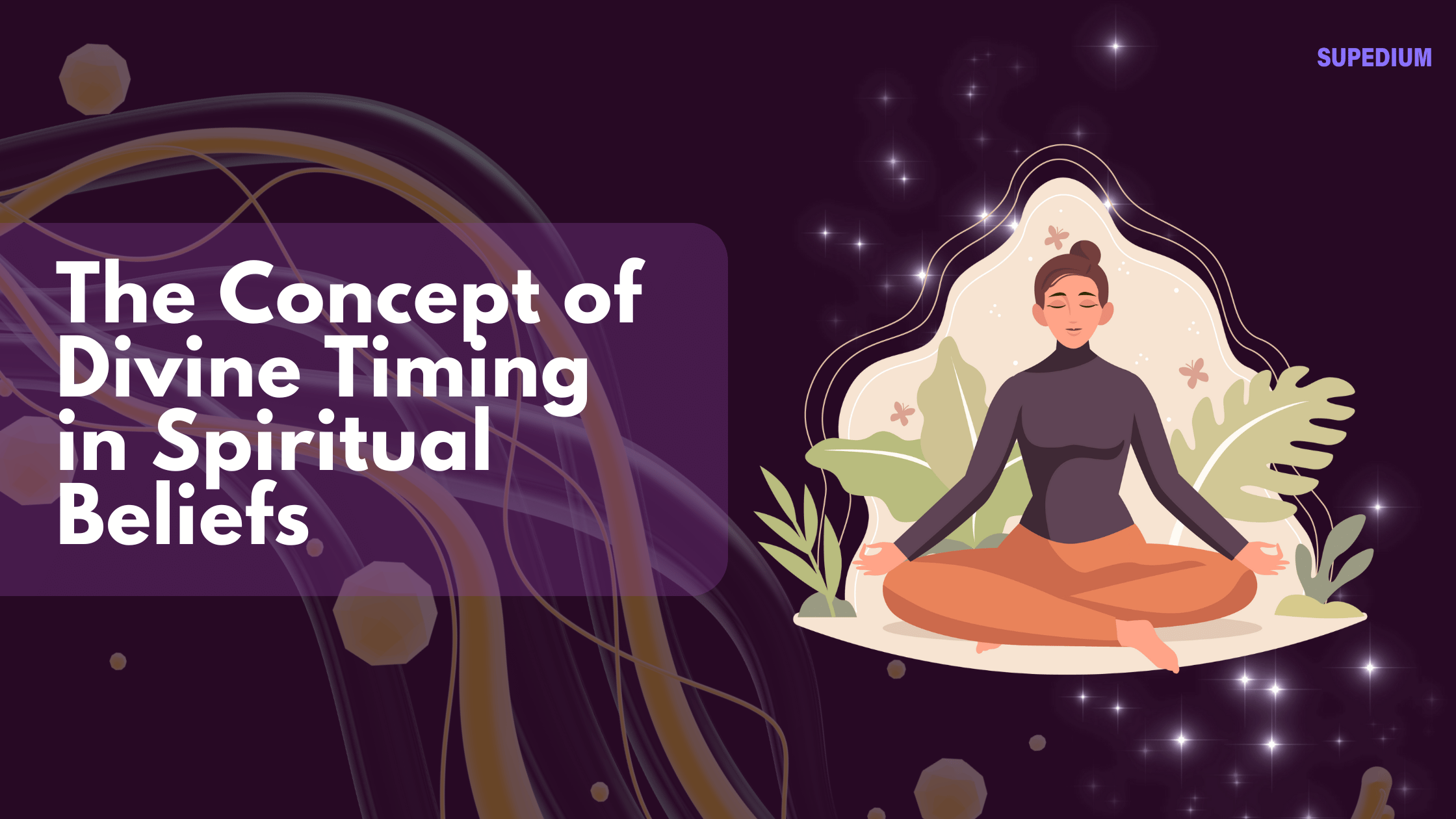Table of Contents
![]()
I. Introduction
Divine timing is a profound concept found in many spiritual traditions, referring to the belief that events unfold according to a predetermined, perfect schedule orchestrated by a higher power. This idea emphasizes the importance of patience and trust in a greater plan, suggesting that everything happens for a reason and at the right time. This article explores how divine timing is interpreted across various spiritual beliefs, its historical roots, psychological implications, and practical applications in daily life.
II. Historical Context of Divine Timing
A. Ancient Beliefs
The roots of divine timing can be traced back to ancient civilizations. The Egyptians, for instance, closely monitored celestial events to determine agricultural cycles, believing that the alignment of the stars and planets directly influenced their lives. Similarly, the Greeks integrated astrology into their daily practices, viewing the cosmos as a guide to understanding human fate and timing.
B. Religious Texts
Divine timing is also deeply embedded in religious texts. In Christianity, passages like Ecclesiastes 3:1-8 articulate the belief that “there is a time for everything, and a season for every activity under the heavens.” This emphasizes a structured, divine order to life’s events. In Hinduism, concepts like karma (the law of cause and effect) and dharma (duty) are intertwined with timing, suggesting that one’s actions have consequences that unfold in accordance with a cosmic timetable.
III. Divine Timing in Major Spiritual Traditions
A. Christianity
In Christianity, divine timing is often linked to faith. The belief that God has a plan for everyone implies that individuals must trust in His timing, even when events seem delayed or confusing. The Bible contains numerous stories illustrating this concept, where characters experience waiting periods before fulfilling their destinies.
B. Hinduism
Hinduism offers a more cyclical understanding of time. The concepts of karma and dharma inform adherents that actions in past lives affect the present, and thus, timing is crucial for spiritual growth. Additionally, the idea of auspicious timing (muhurta) plays a significant role in important life events, such as weddings or starting new ventures, emphasizing that certain times are spiritually favorable.
C. Buddhism
In Buddhism, the focus shifts to the notion of impermanence. Everything is in a constant state of flux, and attachment to a specific timeline can lead to suffering. Therefore, mindfulness and living in the present moment become essential practices. The belief is that by being present, individuals can recognize the natural unfolding of events without resistance.
D. Indigenous Spiritualities
Many Indigenous spiritualities emphasize a deep connection to nature and the cycles of the earth. Events such as planting, harvesting, and seasonal rituals are often timed according to the natural world. These practices instill a sense of communal timing, where the well-being of the community is linked to the rhythms of nature.
IV. Psychological and Emotional Aspects
A. Patience and Trust
Believing in divine timing can provide psychological benefits, fostering patience and resilience. Many individuals report personal growth through periods of waiting, often discovering new insights or strengths. This belief encourages a mindset that allows for acceptance of life’s uncertainties, promoting mental well-being.
B. Resistance and Acceptance
Despite the benefits, many struggle with the idea of divine timing. The desire for immediate results can lead to frustration and doubt. Recognizing this resistance is the first step toward cultivating acceptance. Techniques such as mindfulness meditation and reflective journaling can help individuals align themselves with the idea of divine timing.
V. Practical Implications of Divine Timing
A. Life Events and Milestones
Divine timing often manifests in significant life events. People frequently find that relationships, career opportunities, and other milestones unfold in unexpected ways, leading to a belief that there is a “right” time for everything. This perspective can alleviate anxiety about the timing of major decisions, allowing individuals to trust the process.
B. Spiritual Practices
Spiritual practices such as meditation can enhance one’s connection to divine timing. By quieting the mind and tuning into the present moment, individuals may gain insights about their own timing. Rituals that honor significant times, such as New Year’s celebrations or solstice gatherings, further emphasize the importance of aligning with divine cycles.
VI. Critiques and Challenges
A. Skepticism towards the Concept
Despite its widespread acceptance, divine timing is not without its critiques. Some argue that reliance on divine timing can lead to a passive approach to life, where individuals may wait for events to unfold rather than taking proactive steps. This can result in a sense of fatalism, where one believes that they have no control over their destiny.
B. Balancing Agency and Destiny
The tension between free will and predestined timing is a complex issue in spiritual beliefs. Many traditions seek to reconcile this by emphasizing that while there is a divine plan, individuals still possess the agency to make choices that can influence their paths. Understanding this balance can empower individuals to navigate their lives with intention while trusting in a greater timing.
VII. Conclusion
The concept of divine timing resonates across various spiritual traditions, providing a framework for understanding the unfolding of life’s events. By examining its historical roots, interpretations, and practical implications, we can appreciate the profound influence it has on personal and communal experiences. Ultimately, embracing the idea of divine timing invites individuals to explore their beliefs and find meaning in the rhythms of life, fostering a deeper connection to themselves and the world around them.
Share This





Be the first to comment